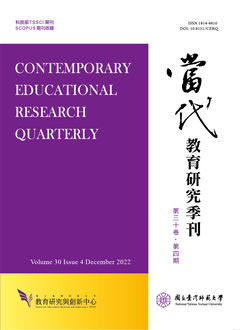

鑑於德國大學在國際學術排行榜上未有亮眼的成績,因此德國在2006年啟動「卓越計畫」,希冀透過高等教育經費之挹注,以創建「德國哈佛大學」。伴隨著該計畫的推動,一直為各方熱議的焦點,學者曾以「燈塔」與「風車」暗喻雙方陣營對該計畫之評價。本研究透過文件分析法評述該政策對德國大學之影響;首先探究傳統德國大學之理念,而後再進一步評析該計畫之資金分配,及其所產生的效應。近代德國大學以洪堡主義的同質性理念為基礎,而卓越計畫則奠基於「分化典範」,促使高等教育重視競爭而趨向分化。該計畫的資金分配呈現集中化,再加上德國聯邦體制更加速大學間之層級分化。卓越計畫本身雖僅聚焦於尖端研究的提升,不涉及教學與一般性學術研究,但由於該計畫的資金分配高度集中,且因研究成果能獲得更多的資金,而使得教學品質受忽視,此從卓越教學獎勵、教學代理人與教學型教授之設置可見一斑。再者,該計畫促動了頂尖學者的跳槽風潮,尤其競賽失利的大學教授被集體挖角,未來將使得重要研究場域集中於少數大學;再則,僅在短時間對個別大學挹注幾百萬歐元,難以打造出德國哈佛大學,此證諸於慕尼黑大學之國際學術排行榜下滑;其所標榜的菁英大學與其說是燈塔,毋寧更像風車。
In response to the lackluster position of German universities in international rankings, in 2006 the German government initiated its Excellence Initiative and began to invest large sums in a few select universities in order to establish "German Harvard University." The results have been alternatively evaluated by using the metaphors of a lighthouse and a windmill. This paper uses document analysis to evaluate the influence this Initiative has had on German Universities. After presenting the traditional ideas on higher education in Germany, this paper describes the budget distribution of the Initiative as well as its effects. Universities in modern Germany mainly subscribe to the ideal of Humboltian homogenization; by contrast, the Initiative is based on promoting academic excellence through competition. Moreover, the budget distribution of the Initiative is quite centralized, and the federal government is making rapid progress in its efforts to rank German universities. The focus of the Initiative is on cutting-edge research rather than academics, with additional funding being made available based on the results of such research. As a result, teaching quality has been neglected, as evidenced by the decreasing importance given to teaching prizes, teaching assistantships, and academic professorship. Another result of the Initiative is that it encourages intense competition to recruit top-notch scholars, who are likely to end up concentrated in a small number of elite research institution. Even so, creating a world-class research university is not merely a matter of investing vast sums of money in a small number of universities. This is made clear from the case of Munich University, which has actually dropped in the international rankings and would be better described as a "windmill" rather than a "lighthouse."

本著作係採用創用 CC 姓名標示-非商業性 3.0 台灣 授權條款授權.
本刊國立台灣師範大學教育研究與創新中心
106台北市和平東路一段162號 | 電話: 02-7749-3670 | E-mail: cerecerq@gmail.com
教創中心 | 師大 | 電子報 | 線上投審系統
本刊由國家科學及技術委員會人文社會科學研究中心補助經費
© 2014 CERI-NTNU
